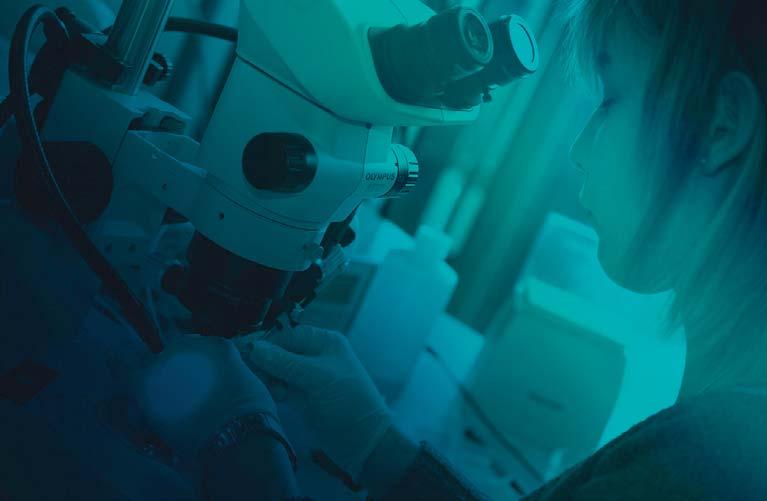I
n
n
o
v
a
t
i
o
n
From a Belgian reference centre to a European network serving patients suffering from hereditary red blood cell diseases The LHUB-ULB has built up a solid reputation in hereditary red blood cell diseases. It relies on a pool of scientists and 11 national reference centres in the fields of microbiology, haemophilia and rare diseases. Over the last two years it has supported 12 PhDs and 15 clinical research projects. In addition, it publishes more than 50 peerreviewed publications every year.
H
ereditary pathologies of the red blood cell like sickle cell disease, thalassaemia, G6PD enzyme deficiency, hereditary stomatocytosis, pyruvate kinase deficiency, are linked either to anomalies in its membrane or its content. They may be frequent in certain populations (where these mutations confer relative protection against malaria) or much rarer. However, giving a diagnosis remains a challenge in the field of rare diseases. The LHUB-ULB is interested in ektacytometry, a diagnostic technique based on the study of the deformability of the red blood cell under various constraints. This technique also enables it to evaluate the rheological properties of red blood cells in sickle cell disease in order to monitor the effectiveness of new treatments. As sickle cell disease patients are treated by blood transfusions, the teams are studying the risk factors for alloimmunisation, the correlations between the immune profile, the risk of alloimmunisation and the development of autoantibodies, as well as the contribution of blood group genotyping to transfusion management. Clinical expression of sickle cell disease may vary between patients. Those aspects are evaluated by different teams in the fields like immunity and haemostasis. In addition, the LHUB-ULB is involved in public health research via neonatal screening for sickle cell disease in the Brussels-Capital Region.
© LHUB - ULB
T e
c
h
n
o
l
o
g
y
University Hospital Laboratory of Brussels - LHUB - ULB
(eurobloodnet.eu) for its non-oncological haematological diseases section. Its main objective is to provide patients suffering from rare haematological diseases with quality diagnosis and care through 5 areas: “cross-border health”, “best practices”, “continuing medical education”, “telemedicine”, and “clinical trial and research”. The possibility of benefiting from European support is a major asset for the LHUB-ULB as it facilitates multicentre research projects. Nevertheless, the laboratory still faces the same challenges as all those dealing with rare diseases: the recognition of these pathologies and the promulgation of centres of reference which must be supported in terms of visibility and funding.
Different sectors of the LHUB-ULB collaborate on clinical research projects with clinicians from hospitals in the ULB network (paediatric and adult haematologists at the HUDERF, CUB Hôpital Erasme, CHU Saint-Pierre and CHU Brugmann), the ULB Genetics Centre, the Institute of Pharmacy and the School of Public Health of ULB, as well as other faculties, Belgian and European research institutes and diagnostic companies. These clinical experiences have led to a network of collaborators at the national level through the Belgian Hematology Society (www.bhs.be) and a working group “Red Blood Cells Disorders” created at the initiative of LHUB-ULB. One of the successes of this group is the creation of a national registry of sickle cell patients. Guidelines for patient management have been published. In addition, LHUB-ULB is supporting thesis projects with Burkinabe, Malian and Congolese collaborators in order to address the epidemiology of sickle cell disease, to strengthen its diagnostic tools and to find therapies accessible to patients. At the European level, the LHUBULB participates in the coordination of the ERN EuroBloodnet
LHUB-ULB Rue Haute, 322 - 1000 Bruxelles Tel.: +32 (0) 535 20 00 - Fax: +32 (0) 535 20 19 Email: beatrice.gulbis@lhub-ulb.be https://www.youtube.com/watch?v=yHOQNcGtCPM 80

















































































































